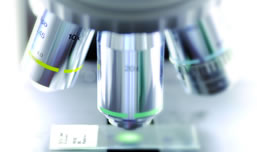The GMA concept and products authorised under the 'old' Regulation (EEC) No 2309/93
November 2015
Novartis Europharm Ltd v the European Commission relates to a direct action against the European Commission (the "Commission") concerning the application of the global marketing authorisation concept to products that received separate marketing authorisations under the 'old' Regulation (EEC) No 2309/93.
Novartis Europharm Ltd ("Novartis") is the holder of marketing authorisations for the medicinal products Zometa and Aclasta – used for the treatment of oncological and non-oncological diseases respectively. Both products have the active substance of zoledronic acid and were authorised in accordance with the centralised procedure. The marketing authorisation for Zometa was obtained in March 2001 and for Aclasta in April 2005.
In late 2012, Hospira UK Ltd ("Hospira") was granted a marketing authorisation for "Zoledronic acid Hospira". Hospira's product also had the active substance of zoledronic acid and existed in the form of four separate presentations which included generic copies of Zometa and Aclasta.
Hospira's application for marketing authorisation referred to data contained in the files submitted by Novartis in the procedures for the marketing authorisation of Zometa and Aclasta.
Consequently, Novartis introduced a case against the Commission for granting a marketing authorisation for another generic version of its medicinal product Aclasta.
Novartis applied for annulment claiming that the generic infringes the data protection rights. It argued that its products Aclasta and Zometa did not form part of the same global marketing authorisation1 and that Aclasta had its own separate global marketing authorisation, triggering its own regulatory data protection period of 10 years. As such, Aclasta should not have been used as a reference medicinal product for the purpose of the authorisation of generic products until April 2015.

The Commission argued that the marketing authorisation for Aclasta was included in the global marketing authorisation for Zometa in March 2001 and any data protection rights should have expired in March 2011.
The General Court found that although Novartis was entitled to obtain a marketing authorisation for new therapeutic indications with a new name (i.e. Aclasta), such marketing authorisation could not be granted an independent global marketing authorisation or a new regulatory data protection period. The purpose of the eligibility criteria for the centralised procedure was not to enable innovative medicinal products to benefit from a new regulatory period of data protection, even if the product was a new variant of a medicinal product authorised previously.
Moreover, Aclasta was constituted of an additional strength and variation, consisting in new therapeutic indications, by comparison with Zometa, and must therefore be included in the global marketing authorisation for Zometa. As such, the products had the same regulatory data protection period and the Commission were therefore entitled to permit Hospira to refer to the data in the files relating to the marketing authorisation of Zometa and Aclasta.
If you have any questions on this article or would like to propose a subject to be addressed by Synapse please contact us.


"The purpose of the eligibility criteria for the centralised procedure was not to enable innovative medicinal products to benefit from a new regulatory period of data protection"

